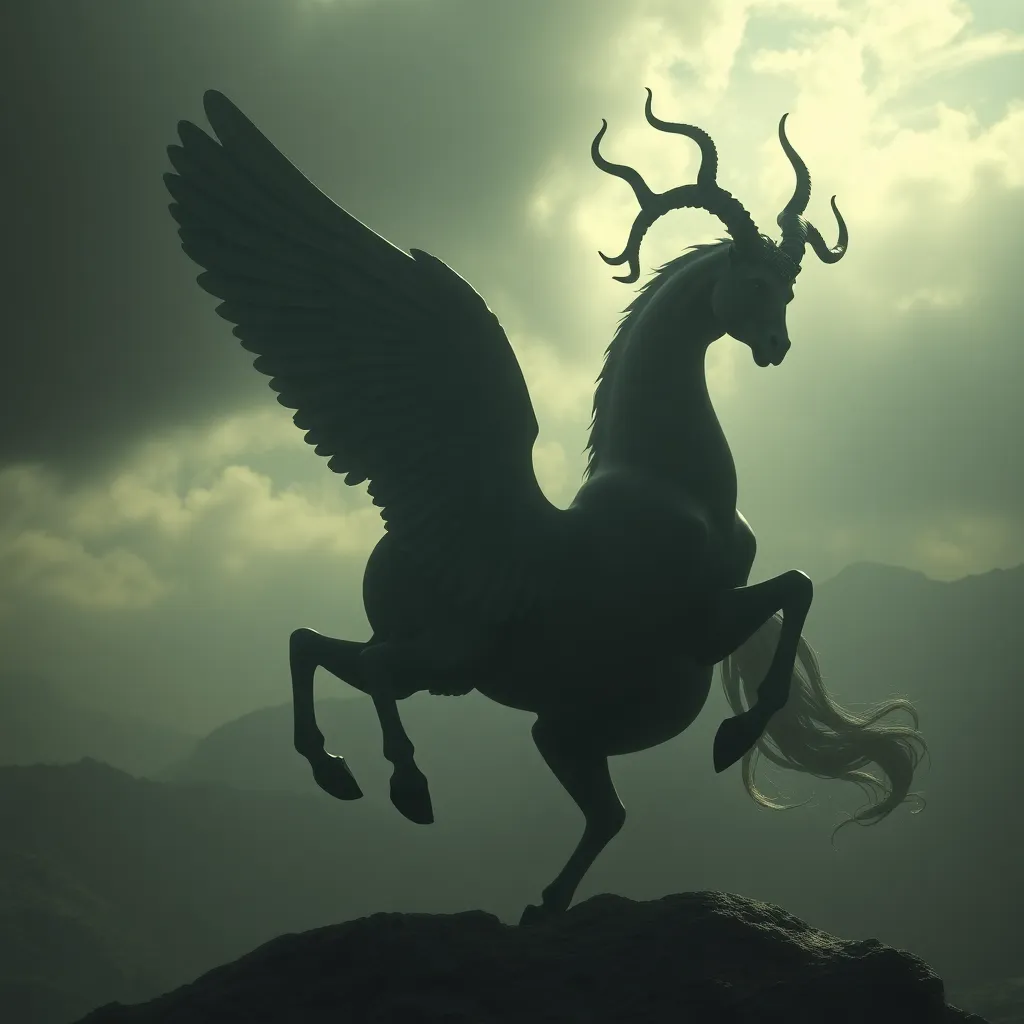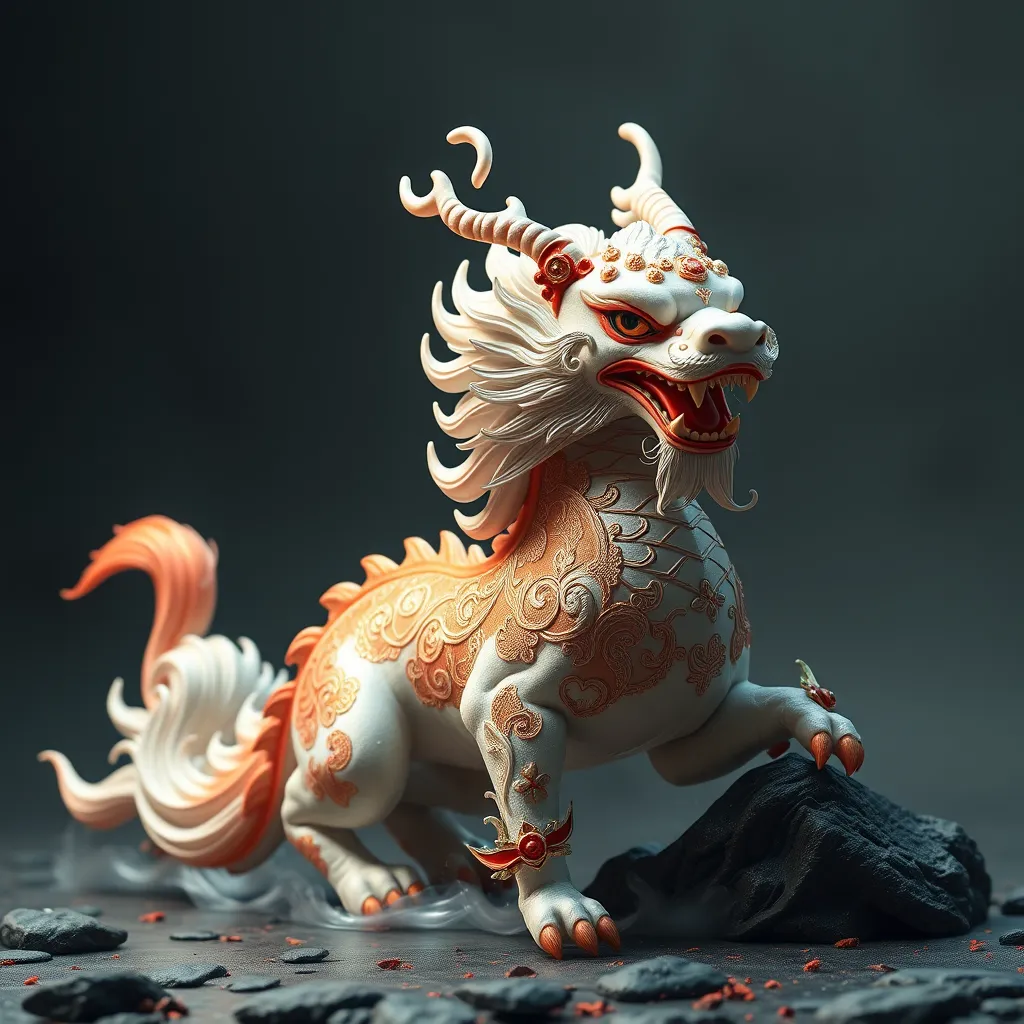The Shadow of the Gorgon: Exploring the Connection Between Pegasus and Medusa in Greek Mythology
I. Introduction
Greek mythology is a rich tapestry of stories and characters that have fascinated humanity for centuries. It is filled with gods, heroes, monsters, and mythical creatures, each embodying various aspects of human experience and nature. Among the most compelling figures in this mythos are Medusa and Pegasus, two entities that, while seemingly distinct, share a profound connection through their narratives.
This article aims to explore the intricate relationship between Medusa, the Gorgon, and Pegasus, the winged horse, examining their origins, symbolism, and the lasting impact they have had on culture and literature.
II. The Myth of Medusa
A. Origins and transformation of Medusa
Medusa was originally a beautiful maiden, one of the three Gorgon sisters, daughters of Phorcys and Ceto. According to myth, Medusa was transformed into a monster as a punishment by Athena, the goddess of wisdom and battle, after she was violated by Poseidon in Athena’s temple. This transformation turned her hair into serpents, and her gaze became so terrifying that it could turn anyone who looked at her into stone.
B. Symbolism of Medusa in mythology
Medusa’s symbolism is multifaceted. She represents:
- Danger: Medusa embodies the fear of the unknown and the danger that lurks in the shadows.
- Protection: Interestingly, her image was also used as a protective symbol, known as the Gorgoneion, often depicted on shields and amulets.
- Feminine rage: Medusa has also come to symbolize the wrath of women, particularly in the context of their victimization and the often unjust consequences they face.
C. Medusa’s role in the mythological narrative
In the grand narrative of Greek mythology, Medusa serves as both a victim and a villain. Her story is a cautionary tale illustrating themes of power, punishment, and the complexities of femininity. As a creature to be feared, she plays a pivotal role in the myth of Perseus, who must confront her to claim victory and glory.
III. The Birth of Pegasus
A. The circumstances surrounding Pegasus’s birth
Pegasus was born from the blood of Medusa when Perseus beheaded her. As her lifeless body fell to the ground, the winged horse sprang forth, symbolizing the duality of creation and destruction. This miraculous birth connects Pegasus directly to Medusa, reminding us that from tragedy can arise beauty and inspiration.
B. The significance of Pegasus in Greek mythology
Pegasus is significant in Greek mythology for several reasons:
- Symbol of inspiration: Often associated with the arts, Pegasus is said to have inspired poets and artists throughout history.
- Transcendence: As a creature capable of flight, Pegasus represents the ability to rise above earthly troubles and reach for the divine.
- Heroic companion: Pegasus is frequently depicted as a companion to heroes, aiding them in their quests.
C. Connection to Medusa’s myth
The birth of Pegasus from Medusa’s severed head underscores the deep connection between these two figures. Medusa’s transformation into a monstrous being and the subsequent birth of Pegasus illustrate the complex interplay between horror and beauty, punishment and creation.
IV. The Symbolism of Pegasus and Medusa
A. Interpretations of Medusa as a symbol of danger and protection
Medusa’s dual symbolism as both a source of danger and a protective figure plays a crucial role in her narrative. While she instills fear in those who encounter her, her image also serves as a talisman against evil, demonstrating the contradictory nature of her character.
B. Pegasus as a symbol of inspiration and transcendence
Pegasus, in contrast, embodies the ideals of inspiration and divine ascent. He represents the potential for creativity and the ability to overcome challenges, serving as a reminder that beauty can emerge even from darkness.
C. How these symbols interact and contrast
The interaction between the symbols of Medusa and Pegasus reveals a profound duality within Greek mythology. While Medusa represents the consequences of female rage and victimization, Pegasus symbolizes the potential for redemption and the transcendence of the human spirit. Together, they encapsulate the complexities of existence—where beauty and horror coexist, and from destruction can arise new life.
V. The Relationship between Heroes and the Gorgon
A. Perseus’s quest and his encounter with Medusa
Perseus’s quest to slay Medusa is one of the most famous tales in Greek mythology. Armed with gifts from the gods, including a reflective shield from Athena, Perseus approaches Medusa’s lair, where he must confront his fears and the monstrous Gorgon herself.
B. The role of Pegasus in Perseus’s journey
After slaying Medusa, Perseus rides Pegasus, who aids him in his subsequent adventures. This partnership highlights the transition from the horror of Medusa to the heroic exploits enabled by her death, showcasing the cyclical nature of myth.
C. Analysis of heroism in relation to Medusa and Pegasus
The relationship between heroes and the Gorgon reflects the complexities of heroism in mythology. Perseus’s victory over Medusa is not just a conquest of a monster; it symbolizes the overcoming of personal and societal fears, with Pegasus offering the inspiration and means to achieve greatness.
VI. Cultural Impact of Medusa and Pegasus
A. Influence on art and literature
Medusa and Pegasus have inspired countless works of art and literature throughout the ages. From ancient sculptures to Renaissance paintings, their images have been used to explore themes of beauty, terror, and the human condition.
B. Modern interpretations of their myths
In modern culture, both figures continue to resonate. Medusa has been reinterpreted as a feminist icon, symbolizing female empowerment and rage against oppression. Pegasus remains a symbol of aspiration and creativity, often featured in contemporary literature and films.
C. The lasting legacy of these figures in popular culture
Their legacies endure in various forms of media, from movies and television shows to fashion and art, highlighting their relevance in discussions of identity, power, and creativity in today’s world.
VII. Thematic Connections: Transformation and Duality
A. Exploration of transformation in both characters
Transformation is a central theme in the stories of both Medusa and Pegasus. Medusa’s transformation from beauty to monster reflects the often harsh realities of life and the consequences of actions, while Pegasus’s emergence from her death symbolizes rebirth and new beginnings.
B. The duality of beauty and monstrosity
The duality inherent in both characters serves as a powerful reminder of the complexities of existence. Medusa’s beauty is overshadowed by her monstrosity, while Pegasus’s grace and power stem from a tragic origin, inviting reflection on the nature of beauty and horror.
C. Lessons from their narratives in contemporary contexts
Today, the narratives of Medusa and Pegasus offer valuable lessons on resilience, transformation, and the intricate balance between light and dark. They remind us that from suffering can arise strength, and from loss can emerge creativity.
VIII. Conclusion
In summary, Medusa and Pegasus represent two sides of the same coin within Greek mythology. Their intertwined legacies reflect themes of transformation, duality, and the complexities of heroism. As we explore their stories, we uncover deeper meanings that resonate with contemporary audiences.
These figures invite us to delve further into Greek mythology, encouraging a greater understanding of the narratives that have shaped human culture and thought. The connections between Medusa and Pegasus remind us that mythology is not just about ancient tales, but about the timeless truths they convey.




